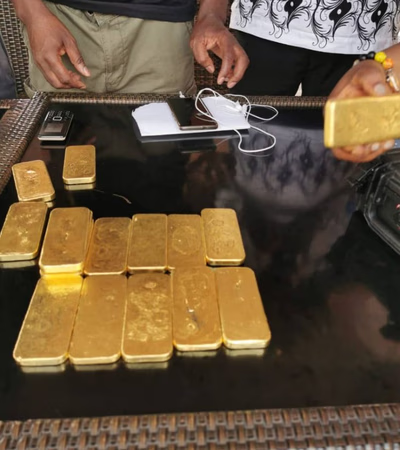
Ghana is a West African country with a mixed economy that relies on both traditional sectors such as agriculture and modern industries like mining, energy, and telecommunications. As one of the most politically stable countries in Africa, Ghana has made significant strides in economic development since its transition to democracy in the early 1990s. The country`s economy is primarily driven by natural resources, particularly gold, cocoa, and oil, making it an important player in the global commodities market. Gold and cocoa are among Ghana’s largest exports, while crude oil, recently discovered in large quantities, is becoming an increasingly important part of the economy. The country is also focused on diversifying its economy, with sectors such as information technology, renewable energy, and manufacturing growing.
Ghana`s trade relations are diverse, with major export markets in Europe, North America, and Asia, and imports sourced from countries like China, the United States, and India. The country maintains a fairly liberal trade regime, and there has been a consistent push to attract foreign direct investment (FDI) by improving infrastructure, reducing trade barriers, and modernizing the financial sector. The Ghana Investment Promotion Centre (GIPC) plays an active role in this, providing incentives for investors and promoting Ghana as a gateway to the West African market, thanks to its strategic position in the region.
Regarding trade with the Middle East and West Asia, Ghana’s interactions have increased in recent years, especially with countries such as the UAE, Turkey, and Saudi Arabia. These relationships focus mainly on trade in goods such as oil, gold, and agricultural products. The UAE is one of Ghana`s significant trading partners in the Middle East, with imports including machinery, chemicals, and electronics, and exports from Ghana to the UAE predominantly consisting of gold and cocoa. Turkey is another emerging partner, involved in construction, energy projects, and manufacturing sectors. Ghana`s expanding oil production has also caught the interest of countries like Saudi Arabia, opening opportunities for further energy cooperation and investment.
Financially, Ghana’s banking and monetary systems are evolving, with the Bank of Ghana acting as the central regulator. The country has a growing fintech sector, which is helping modernize its financial services and expand access to banking for both businesses and individuals. While Ghana’s currency, the cedi, can be volatile, the government has made efforts to stabilize the macroeconomic environment through fiscal policies and development programs. Despite challenges like inflation and external debt, the financial sector remains relatively robust, with ongoing reforms to support trade and investment growth.
-
 Ultimate Mining Company Ltd 3 months ago
Ultimate Mining Company Ltd 3 months ago Ghana
Gold Dore Bars
Ghana
Gold Dore Bars
OUR PRODUCT DESCRIPTION:Commodity: Gold Dore BarsOrigin: Ghana / Burkina FasoPrice: 58,000 USD per kgPurity: 93%Karat: 22Quantity: 100MTProduct Histor...Details
In 2025, Ghana presents a unique economic landscape marked by distinct patterns in trade and economic indicators. A startling trend is Ghana"s merchandise import value, which saw a decline in the chained indices from 109. 7 in 2021 to 95. 8 in 2023, contrasting sharply with the global average increase to 101. 1. This suggests a contraction in Ghana"s import activities relative to global trends, potentially due to domestic economic adjustments or policy shifts. Ghana"s GDP in current US dollars stood at approximately $76. 4 billion in 2023, a decline from 2021, contrasting with a global GDP increase to $883.
7 billion. This suggests Ghana"s economy is navigating challenges possibly linked to external economic pressures or internal policy shifts. Despite these challenges, Ghana"s export performance remains robust. Exports as a percentage of GDP were 34. 04% in 2023, aligning closely with the global average of 32. 11%. However, the export value indices fell to 95. 2 in 2023 from 118.
8 in 2022, indicating a reduction in export revenue despite steady volume indices, which may point to external market conditions affecting export prices. Agriculture continues to be a significant sector for Ghana, contributing 21. 1% to the GDP in 2023, nearly double the global average of 11. 4%. This highlights an opportunity for international investors looking to tap into Ghana"s agricultural potential, particularly in raw materials and commodities. The official exchange rate fluctuated significantly, reaching 11. 02 LCU per US$ in 2023, reflecting a volatile currency which could pose risks but also opportunities for foreign investors as the market adjusts. For businesses aiming to engage with Ghana"s market, platforms like Aritral.
com offer enhanced visibility and strategic insights. With its AI-driven tools, Aritral. com facilitates direct communication and global sales assistance, enabling companies to navigate the complexities of Ghana"s trade landscape effectively. Considering these dynamics, businesses should strategically plan their market entry, focusing on sectors with growth potential like agriculture, while staying informed on currency and trade flow trends.

